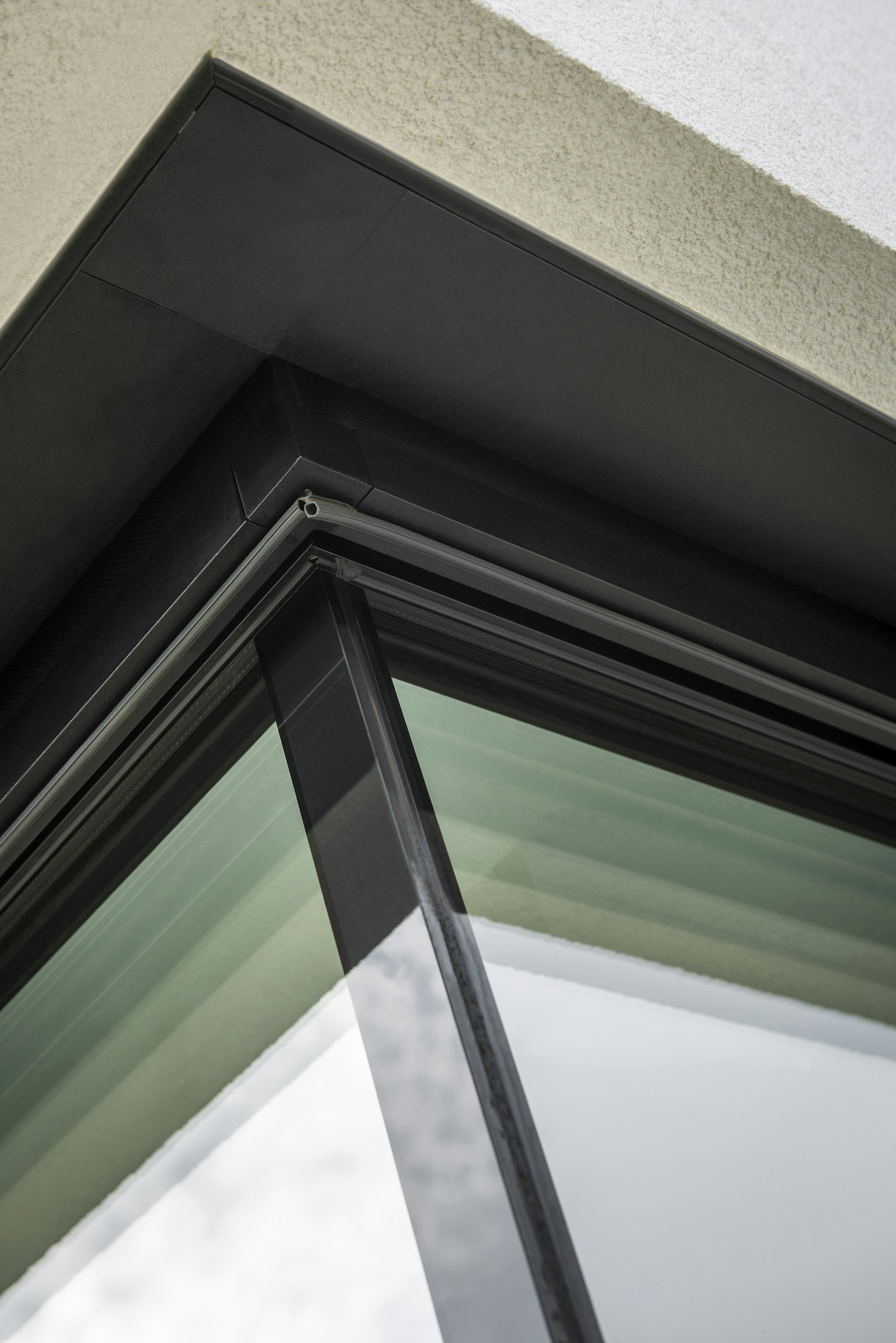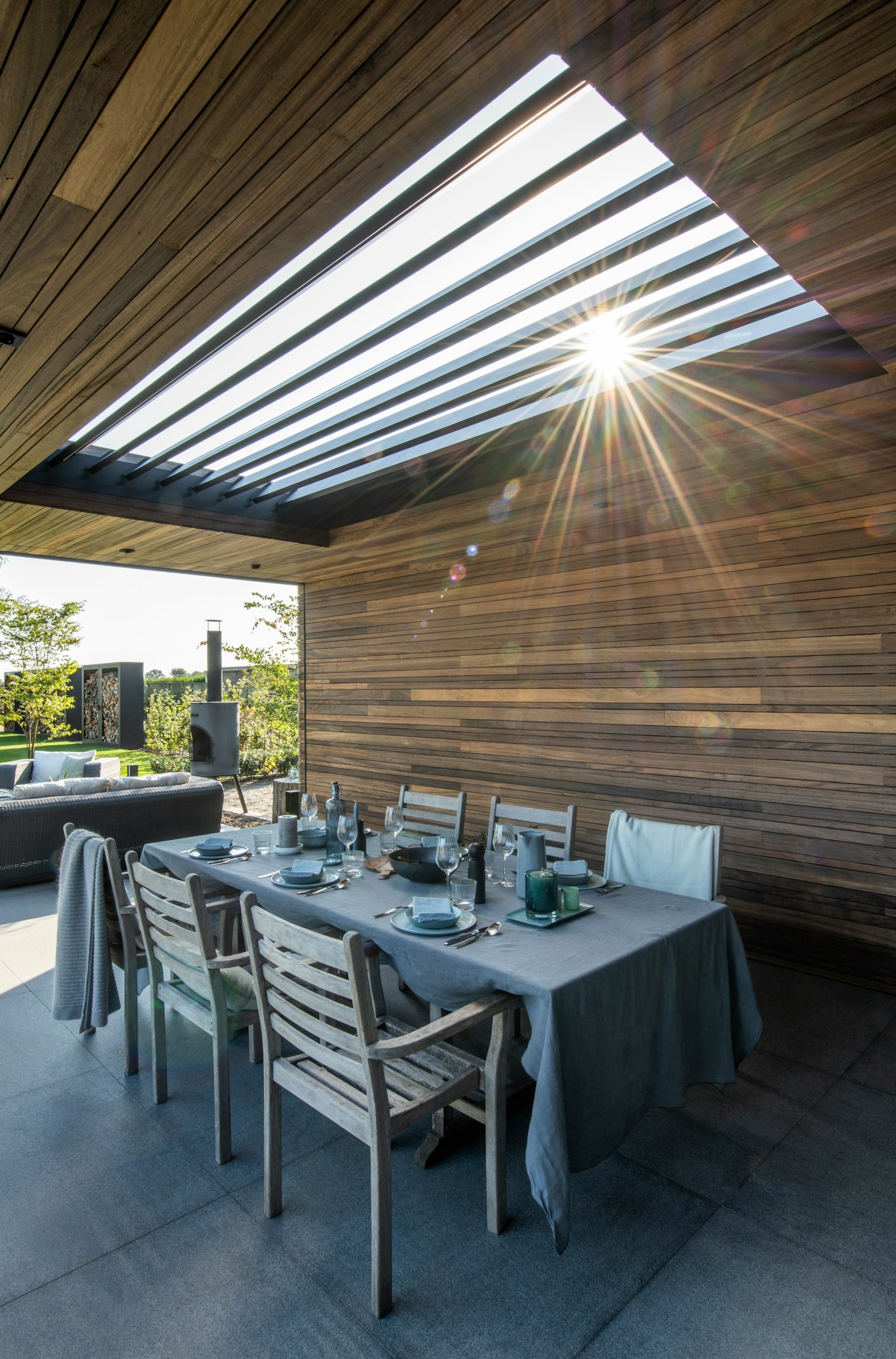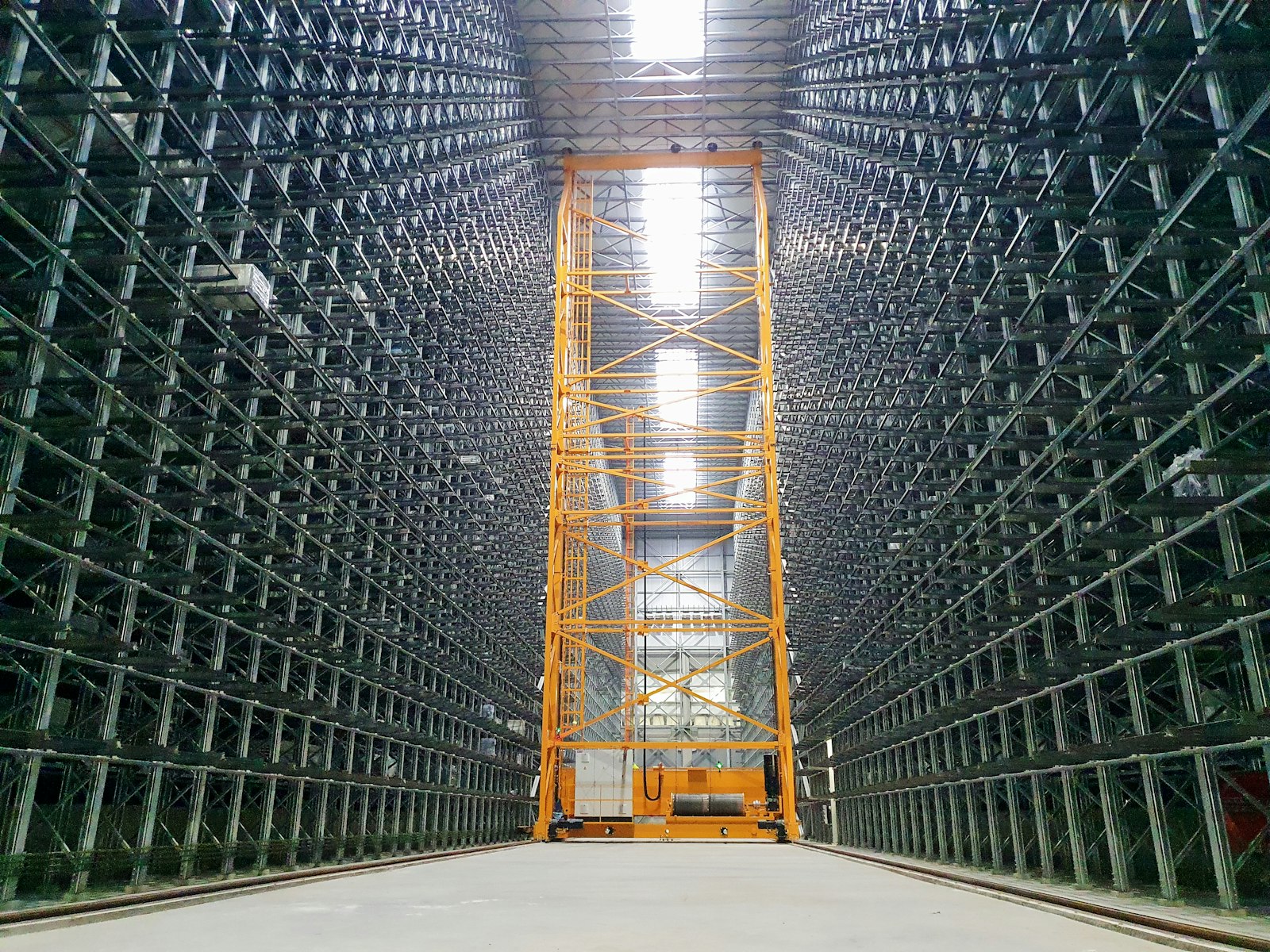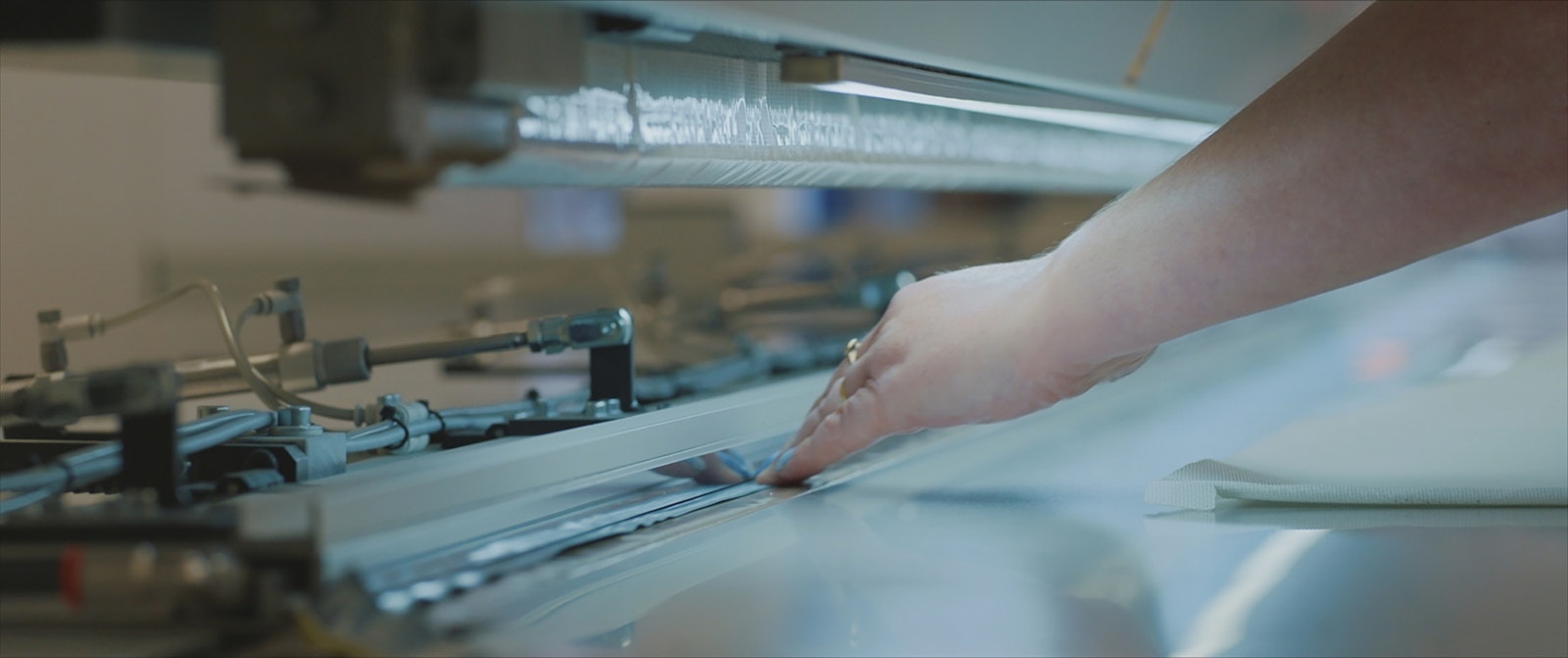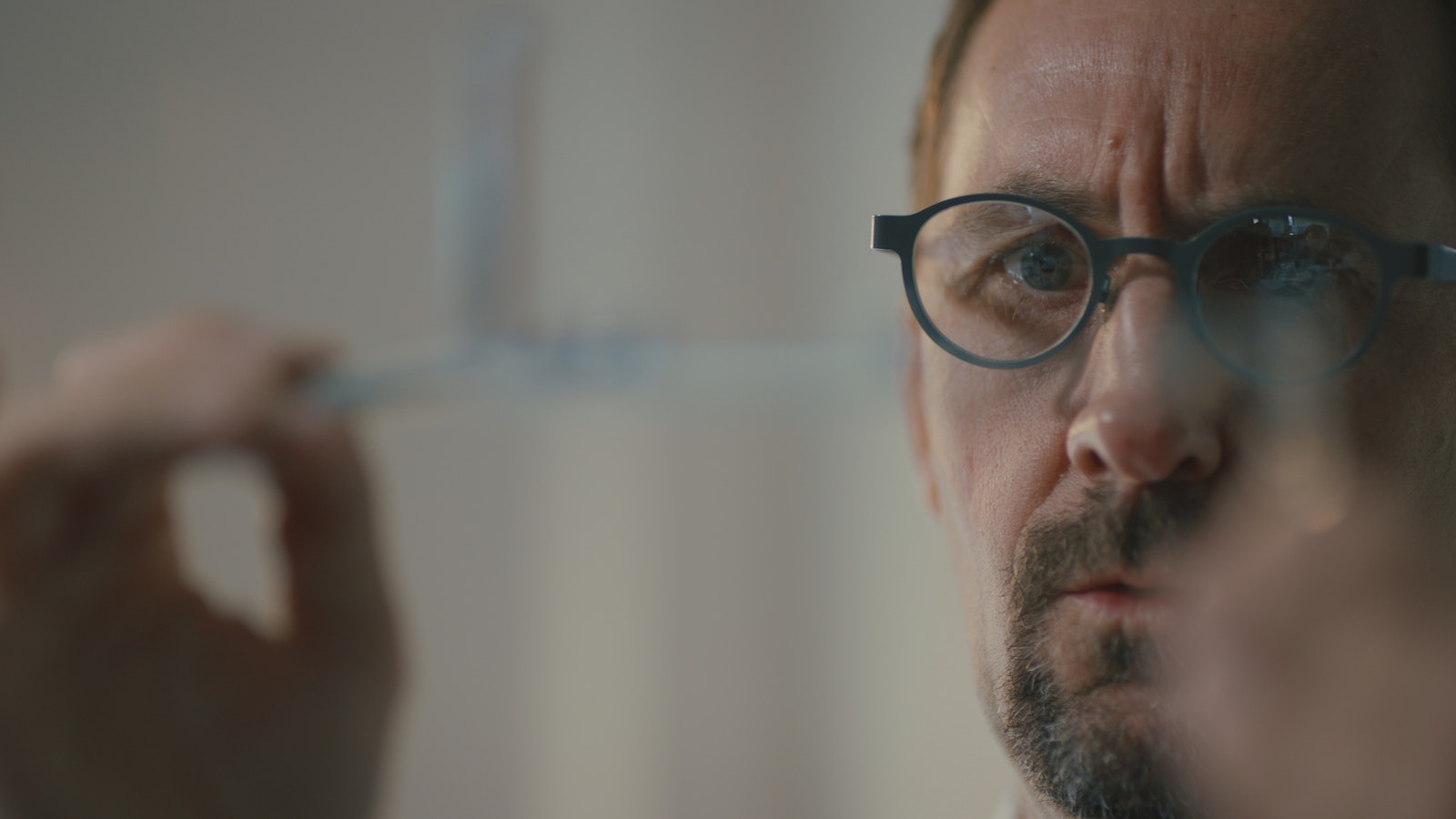de Velde
Renson
Twenty years ago, CEO Paul Renson invented the baseline “Creating Healthy Spaces.” Translated specifically into three pillars — sun blinds, ventilation and outdoor living — it turned out to be a visionary philosophy that made Renson a global player.
In 1909, great-grandfather Polidore Renson started the family business from nothing. Originally, Renson produced window handles and door fittings made of steel, and later on, of aluminium. As the third generation, Jan Renson focuses on air vents for the residential and industrial markets. Combined with takeovers in the world of fabric awnings, this forms the basis for today’s Renson, which has been under the management of Paul Renson since 1982. Based on his vision of healthy indoor and outdoor spaces, he is driving the company towards global expansion. “The tipping point of energy-efficient construction was in the early 2000s. Energy efficiency is important, of course, but it must not be at the expense of a pleasant, healthy home. If you consider that on average we spend 90% of our time indoors, indoor air quality is even more important than outdoor air quality. With a product like Sense, we make people aware of the air quality, and our ventilation systems take immediate action if they detect CO2, moisture or odours. In this sense, we offer more of a service than a mere product,” says Paul Renson. “In addition, we want to encourage people to spend more time outdoors with our outdoor living range.”
Although Renson has been on the rise worldwide for years, the pandemic has finally convinced everyone of the importance of air quality. “Since nowhere as healthy as when surrounded by nature, we need to reintroduce it into our homes and cities. We need to restore the balance with nature. It is unfortunate that a global pandemic was needed to make us aware of the fact that we had gone too far,” says Renson. “That’s why Renson is bringing solutions to the market that utilise the natural elements in a smart way to heat or cool our homes and bring in fresh air. Our outdoor sun protection, for example, blocks the sun even before it reaches our windowpanes and overheats our homes. In this way, we avoid having to resort to artificial solutions afterwards to allow it to cool down indoors.”
Warm minimalism
Under Paul Renson, the family business evolved into a knowledge company, where some 110 of the 1,200 employees work in the R&D department. “If you cannot differentiate in terms of innovation, you are left with only the ‘price’ to distinguish you from your competitors. That’s why the phrase ‘there’s no speed limit on innovation’ is one of my hobby horses. Even with 10% of our employees involved with R&D, we still have too little capacity to develop our ideas. Every innovation brings added value to the market. For example, we came up with a product that combines ventilation and sun protection; thanks to an innovative zip system that makes fabric awnings wind-resistant, we have put the screen market back on the map; and we have won back the air vent market by using the right product (Invisivent) to respond to the need to be able to combine a direct supply of fresher air with acoustics, thermal comfort and design,” says Renson.
“With things like ‘connectivity’, ‘the internet of things’ and ‘smart homes’ gaining in importance, data are becoming increasingly important. To avoid energy loss and guarantee perfect air quality, technology and appliances will increasingly ‘talk’ to each other, so that a combination of digital and mechanical controls will automatically provide us with healthy indoor air. A great deal of innovative know-how is needed to be able to coordinate all this,” says Renson.
“I also believe more and more in design and see its added value becoming a daily reality in the cooperation between designers and colleagues with a technical background. Design takes a purely functional product to a higher level. Because we conceal the technical elements and everything fits together, a product looks visually calmer. This results in a harmonious Zen feeling, without loud stimuli, as is often the case in Japan. ‘Less is more’ or the power of ‘warm minimalism’, as I like to call it,” Renson says. “For us, design is also the art of incorporating technology invisibly, perfectly integrated into the interior or façade: from window air vents (Invisivent), through minimalist sun protection (Fixscreen Minimal) to interior door frames (Invisidoor) and hinges. In the area of parcel letterboxes (eSafe), the design is even the distinguishing factor compared with competing products. That we are winning this award is proof to me that we are on the right track.”
Local anchoring
Today, Renson exports to 83 countries and has employees all over the world. Outside Europe, production takes place locally in the United States and China in order to keep delivery times short and minimise transport costs. But most of the products are made entirely in Belgium. Renson is currently completing the new construction for its rapidly growing Outdoor Living division, founded in 2010, on a ten-hectare site along the E17 in Nazareth/Kruisem. “Thanks to a smart link between the order system and our fully digitally controlled factory, we can combine a high level of automation with customised production. This was also an essential prerequisite for keeping production in Belgium. The advantage of this is that it keeps the lines between our R&D department and production short, allowing us to make adjustments quickly,” says Renson. “At the same time, there is sufficient talent here, and the schools are of a very high standard. That is something we notice, among other things, in our partnerships with local secondary schools, universities and knowledge institutes. In addition, entrepreneurship here is unique. The drive, know-how and mentality to constantly want to move forward characterise us. That is also an achievement brought about by our schools and training courses.”
As a company manager, Paul Renson attaches great importance to the social aspect of entrepreneurship. “You can erect the most beautiful buildings or offices, and have the most advanced machines in-house, but without the ‘best people’, you cannot make it. That’s why we’re constantly looking for the right people to help our company grow. In doing so, we appeal to different social strata. At the same time, everyone here is trusted and respected, and our employees from sheltered workshops also attend our activities, such as the New Year’s reception. We want everyone to feel good about themselves here. Some families have even been working with us for two or three generations,” says Renson. “In addition, we like to join forces with companies that develop additional products or services, so that together we can offer even better solutions to consumers.”
According to Paul Renson, we Belgians should be a lot more proud of our design scene. “We are far too modest about our merits in terms of design and how we link that to functionality. Moreover, we are often even trendsetters, especially in outdoor living. No less than 75% of our turnover in this pillar comes from abroad. It is no coincidence that various Belgian companies are among the world’s leaders in outdoor furniture.”
